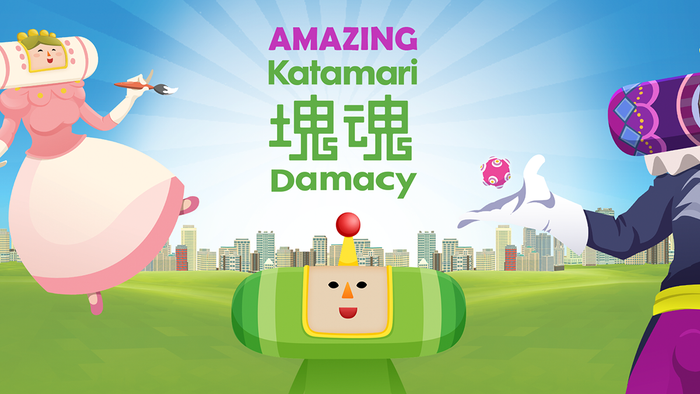
Featured Blog | This community-written post highlights the best of what the game industry has to offer. Read more like it on the Game Developer Blogs.
Enthusiasm, Perfectionism, Momentum and Failure
“Following a dream is a long-term endeavor, requiring a lot of interesting but definitely non-dream steps before catching up to the dream.” – Tim Sweeney, CEO, Epic Games


Now with ShardLine’s Chapter closed, I wanted to share my experience, as I did when starting out this venture. But first I want you to know, that what we experienced at ShardLine is by all means not the ultimate truth, what could go wrong, or that everything we did was flawed and shouldn’t be done. Arguably it is very circumstantial when it comes to building a Start-Up, and any challenge will come in another form or fashion. Secondly, this is my personal view of the ShardLine Experience.
A very wise man and successful entrepreneur, which I love for his modesty and honesty, has written me in a small exchange about the faith of ShardLine:
“Following a dream is a long-term endeavor, requiring a lot of interesting but definitely non-dream steps before catching up to the dream.” – Tim Sweeney, CEO, Epic Games
ShardLine started with a few people, that came together to build a Game Studio in Switzerland. The goal was to come up with a Prototype and Business Model to convince Investors to invest into our endeavor to be able to start the pre-production/production phase. Our Business Model followed along the Episodic-Release Strategy that was mostly inspired by TellTale Games.
Business First, Marketing Second, Art Third,…Game Last
The first thing that existed was a Business Plan. Funny enough, a Business Plan should also describe the product/game which was wide in the open. In the beginning I began to write a one pager that ultimately became Identity Crisis. But what was missing was a complete concept what the game should really be. Everything came first, Art, Music, Trailers, Story, but what came last, was the mechanics, the core of the experience, the things a player will ultimately interact with, moment-to-moment.
In many ways it opened us a lot of doors for consistently working on creating a convincing and concise Business Concept, but ultimately it was not enough.
With winning the Public Choice Award, we entered a double-edged sword very early. Don’t get me wrong, it was great and an Award is in my opinion a fantastic tool to market your Business and Products, but not to say that we ultimately did something better. But what we were masters in with no doubt is enthusiasm, motivation and vision at that time. And that is what people liked so much about us and gave us the chance to speak in front of some of the major news outlets back in Switzerland, opened us the door to be interviewed at Full Sail University, and gave us contacts to various people in the industry.
No doubt, it was important that we talked to a lot of people and grew our network, but it completely blocked us from doing what was really important, developing a game.
Over sizing the team to fast
A real killer in many ways, was the size of the team. I really drove this very far and consistently challenged my leadership team, to work with many talents as they could and beyond.
Planning was a very essential and important part to manage such a team, but for any of you who worked in larger project knows that a plan is only as good as the Project Leaderships ability to execute it effectively, adjust to unforeseen changes intelligently and keep the team on track. I would say that we failed here miserably. Not with its planning, but definitely the execution was pure chaos. The Core-Team was overwhelmed and couldn’t keep up with leading and inspiring people, next to working on the game.
I think one of my biggest misconception was that if you put people into a pot of enthusiasm, and optimism, all will rally and put their own ideas freely and consistently in. I always imagined that creative people would love that, having a very open forum of everyone being able to participate. In my small microcosms of ShardLine, I learned that I completely was wrong.
My biggest mistake was to completely think that I only need to do the Business-side of it, and let everything else come together by just presenting a plan and let creative talents take over.
Don’t get me wrong I really don’t want to say that essentially this is always true, and in another venture this might have been differently. I first needed to listen more and talk openly to people what they expect and don’t make up something in my mind which than essentially isn’t true for that situation.
Killing ourselves
There were two major factors that killed us, especially in a psychological sense:
Everything needs to be perfect
I never liked this characteristic. Honestly, I really hate when people try to be perfectionists. Love for detail and to work for the highest possible quality isn’t the same as to being a perfectionists in my opinion. It completely kills the iterative process, which is so important in creating games. Waiting on Art or Business, while mechanics needed to be tested and created, was again another example why we just looked at everything else, but the game.
Losing faith
At some point, especially during and after Games Connection it started to grow in us, that all we did is not good enough, and that what we strive for is simply impossible. And yes, it is impossible if one loses faith in what you actually achieved.
Now here comes the interesting part. All year long we were just doing Business, Art Trailers and trying to get attention, and at the peak of doing this in just 3 months with a majority of 5 people working 4 weeks day and night, and doing incredible work, completing a Prototype, with a Story, Intro, VO, Gameplay, including VFX, Modular Assets, Materials, including several Post Processing Scenes and actually managed to go to an Exhibition and getting that organized, makes one wonder what we actually wanted?
We didn’t appreciate what we have done so far, and weren’t ready to push into the next phase of iterating over it but rather see the wall before our face and not the incredible feat of actually having finished something.
Disappointment, Failure and Mistakes.
When things began to deviate into the direction to do another game, I was first convinced that this is wrong, and we didn’t even come to the place where Identity Crisis could’ve been today, if we iterated over the work we have done and put things into perspective.
But at some point I was given a choice over people who will stay or leave and there I see one of my biggest mistake. I should’ve understood that being pushed to such a choice just will betray the vision a lot of us believed in. People will either follow or leave and that is so much part of life as failing. But fear of losing something became stronger.
Don’t get me wrong, I am all about being flexible and open to change the course, but the circumstance to give choice over people, made it a very ugly place to be at that time.
Ultimately, even taking on the new game for a while, didn’t really spark new motivation, or a large-scale engagement. Nothing really happened at this point except for some meetings, which was very heartbreaking to see. So at that point the only thing I could do is to actually close ShardLine for good.
In a nutshell a lot of mismanaged happened at ShardLine, especially on my part, and it is definitely a lesson for our further life’s journey.
As Tim Sweeney wrote, it will take a lot of non-dream steps, this has been one of many, and many will follow, until we truly can say, we did it.
About the Author(s)
You May Also Like












